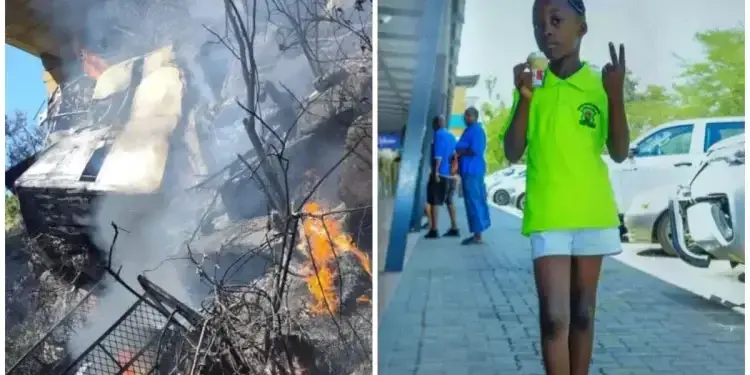South Africa: White Farmer Kills Three Black Schoolchildren
South Africans and the internet are in an uproar over reports a White South African farmer ran over and killed three South African schoolchildren, commonly referred to as learners in South African culture. On February 25, in Dalton, KwaZulu-Natal (KZN), South Africa, a white farmer ran over three schoolchildren with his vehicle, killing them. Witnesses allege the farmer deliberately ran over the children. The famer alleges he ran over them because he “thought they were animals.”
The Economic Freedom Fighters issued a statement on May 25 about the incident which according to them, has not been properly investigated:
In the video below, the mother of one of the victims alleges the driver, who is a major employer in the area, was drunk and fled the scene. He was found hiding behind some farmhouses but has yet to be taken to jail or charged with a crime according to the father of one of the victims. They also alleged bottles were found at the scene of the incident, the car was upside down and the farmer killed someone previously while drunk driving and served no time. The mother of the victim alleges there is a separate system for Boers than Black South Africans. The families demanded justice.
The statement goes on to outline crimes against Black schoolchildren by White farmers. Despite South Africa being 82 percent Black, Blacks only own 4 percent of the land. White South Africans own 72 percent of the land while Coloureds and Asians own nearly 20 percent despite being 8 percent and 2 percent of the population.
This disparity is rooted in South Africa’s history of colonialism and apartheid, during which policies like the 1913 Natives Land Act restricted Black land ownership and forcibly displaced communities. This led to a concentration of land ownership in the hands of the white minority. Post-apartheid, the South African government has pursued land reform to redress these historical injustices, aiming to redistribute land and provide restitution for those dispossessed. This redistribution is critical to the economic growth and development of Black South Africans. However, the pace of land reform has been slow, and the government has faced challenges in effectively transferring land and supporting new Black landowners.
The EFF was established in 2013 as a breakaway from the African National Congress (ANC). Julius Malema, a former ANC youth leader, is the current leader.
This story is developing.
This article was written by Nsenga K. Burton, Ph.D., editor-at-large for NNPA and founder & editor-in-chief of The Burton Wire. Follow TBW or Nsenga on social media @TheBurtonWire or @Ntellectual.

